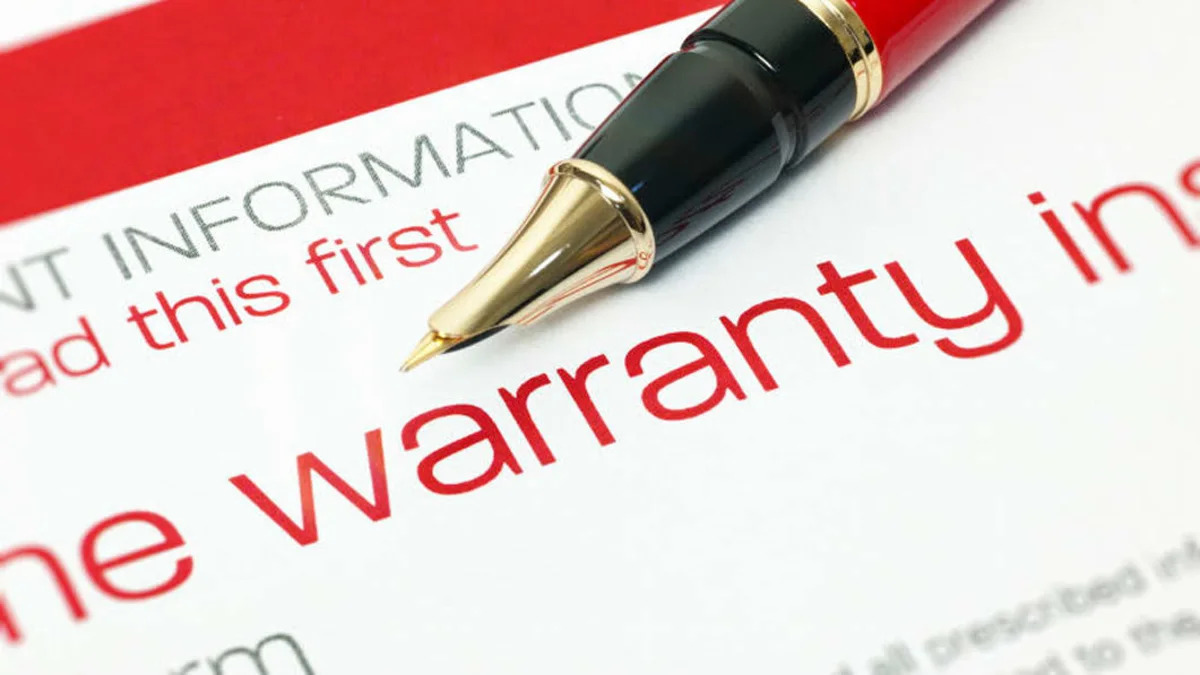This is part of our Car Buyer's Glossary series breaking down all the terms you need to know if you're buying a new or used car from a dealership.
Here's the short answer: An extended warranty is coverage that you purchase that comes into effect after the original factory warranty period expires. Generally, you can purchase it at any time before the factory warranty runs out. Extended warranties may be offered by the manufacturer, or by a third-party company – and both types could be sold to you at a dealership. It is also known as a service contract.
Let's make some things extra clear before we go any further. There's more information below on each of these points.
- You DO NOT have to buy an extended warranty when you buy the car.
- You SHOULD NOT need an extended warranty to qualify for financing.
- You PROBABLY SHOULD NOT buy an extended warranty at all. Yes, you read that correctly.
Understanding what sort of warranty you're buying, and who's actually responsible for administering the warranty, is very important. Just because the warranty is offered to you at a Ford or Toyota dealership when you buy the car doesn't mean that it's a Ford- or Toyota-backed warranty. Figure out who the carrier is and do some research to see how satisfied people are with the claims process.
You'll also want to make sure that the warranty will be honored at the dealer or mechanic you actually plan on servicing the vehicle at, and if it'll also cover a broad network of other dealers near where you plan on using the vehicle. What good is an extended warranty if your car breaks down and the tow truck has no participating mechanics to tow it to?
As for what an extended warranty covers – even it it claims to be "bumper-to-bumper" – there's very little consistency. You'll want to carefully read the terms. Luckily, most warranties are written to tell you everything that isn't covered – if it isn't on that list of exclusions, it's covered. The bottom line here is: read everything very carefully.
And then there's the fuzzy math involved to figure out whether an extended warranty will actually save you money. We say "fuzzy" because there's no telling what might break outside of the warranty period. It's somewhere in between buying insurance and gambling. For most casual buyers, running the numbers here to determine the value proposition is going to be almost impossible.
Partly that's because modern cars are fairly reliable. Many don't have serious repair needs that aren't related to recalls within the service life of the vehicle. And extended warranties won't help with the cost of what we in the industry refer to as "consumables" – items like tires, brake pads and rotors, and certain expensive exhaust components that simply wear out over time. These are the expenses that most car owners will need to budget for, not a rare catastrophic engine or transmission failure.
One other quick point: we've heard of car buyers being hassled by dealers to buy extended warranties as a condition of getting financing. For lack of a better word, this is a scam. Figure out who the lender is that's providing financing and ask them before signing any paperwork. They'll almost certainly tell you this is bogus. If they do require an extended warranty as a condition of giving you a loan ... you should go with another lender.
-
Read more: What's a limited warranty on a new car?
Some reputable consumer advocacy organizations, like Consumer Reports, strongly advise consumers not to bother with extended warranties at all. This is because, as CR says, "Extended warranties can have many gotchas, relying on contract fine print to deny coverage for almost any reason." They recommend that you budget some money for unexpected repairs after the warranty period is over – your bank account can't deny coverage on the repair. There's no fine print.
We tend to agree with Consumer Reports here. There are a lot of unknowns involved with extended warranties, but one guarantee: you'll be paying a lot of money for a benefit that is either hard to understand or hard to receive. And likely won't need.
If you have your heart set on a car that has a really bad reputation for breaking just after the warranty period, and you're comfortable comprehending warranty legal language, maybe an extended warranty is right for you. You'll want one that comes as close to matching your original warranty's terms as possible, preferably offered by the car's manufacturer and not a third party – a true extended warranty.
So what about that service contract thing? That's the technical name for an extended warranty. Warranties are included in the purchase price at the time of sale – any additional coverage that's purchased to cover a period of time after that initial warranty expires is known as a service contract. It's just another, more accurate, way to refer to the same thing.


Sign in to post
Please sign in to leave a comment.
Continue